SUMMARY
This is AI generated summarization, which may have errors. For context, always refer to the full article.
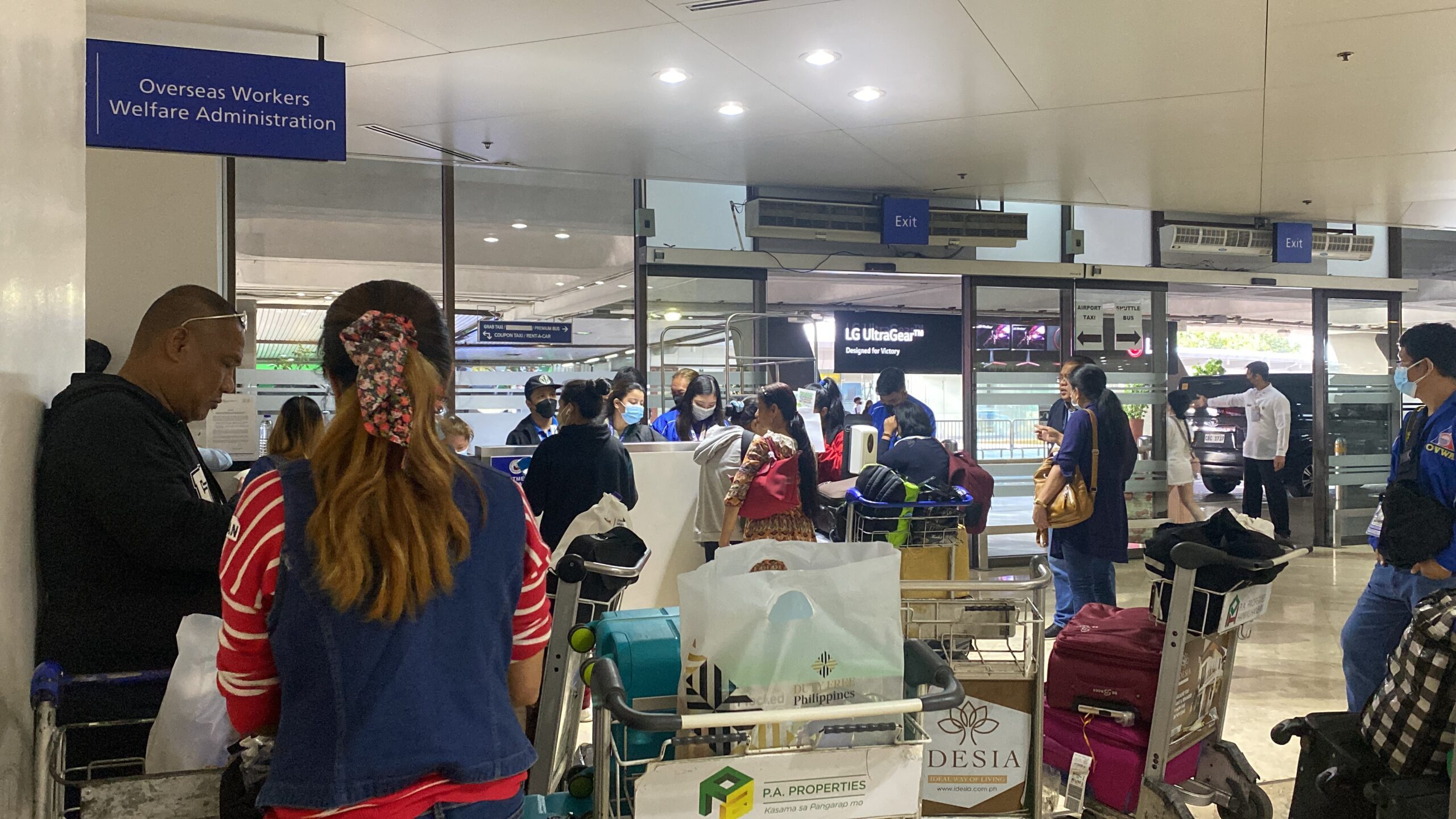
MANILA, Philippines – Women and children were among the more than 80 Filipinos repatriated to the Philippines on Friday, May 5, but they longed for their family members left behind in conflict-hit Sudan.
“I miss my mom and my father. We just [separated]. Everyone is in other places. We are not together,” said teacher Rayan Osman, a Sudanese-Filipino who arrived in Manila without her parents. She was with her sister-in-law and nieces.
“Masakit sa dibdib ko, nag-iyak-iyak ako. Sinabi ko, puwede ba silang makasama sa amin, sabi nila hindi puwede. Sinabi nila, maybe next flight [they] will come with us,” she said. (It’s a pain in my chest that brought me to tears. I asked if they could come with us, but I was told they could not, and they could perhaps come in the next flight.)
Rayan hopes to find work as a teacher or call center agent in the Philippines.

Meanwhile, it was a bittersweet experience for 65-year-old nurse Edna Rabaino, who stepped foot in her home country after 17 years abroad.
“Masaya ako [na umuwi] pero naiwan namin ‘yung asawa ko. Walang papel, kaya naiwan siya,” she said. (I am happy to be home, but we left my husband. He did not have travel documents, which is why he had to stay.)
Edna said her Sudanese husband stayed in Khartoum with relatives, and that he was safe and in contact with them. With Edna was her youngest child, a 26-year-old daughter, whom the family hopes can secure work in the Philippines.
“Ang [panawagan] ko sa gobyerno natin, ang matulungan siya na makapunta dito sa Pilipinas para magkakasama ulit kami (My hope is that the government helps him to come here so we can be together again,” said Edna.

Of the more than 600 the Philippine government has evacuated from Sudan, at least 155 have arrived in the Philippines as of Friday, Migrant Workers Undersecretary Hans Cacdac said.
The United Nations has pressed Sudan’s warring factions to guarantee safe passage of humanitarian aid after six trucks were looted and air strikes in the capital undermined a supposed truce.
Sudan said on Tuesday, May 2 that at least 550 people have died, while 4,926 have been wounded in the conflict.
Flying without parents
In the Manila airport on Friday, seven-year-old Gabbie (not her real name) cried as her playmates at the Sudan-Egypt border left with their families. While she was with two adults, they were not her parents.
“Nadala lang siya sa amin (She was just brought to us),” the woman who took care of her said. The two adults, who said that Gabbie’s parents were fellow Filipinos they knew from work, said that the girl was brought to them by two other children with a piece of luggage. They did not see her parents when she came to them.
They said that the parents did not give any instructions as to what to do with Gabbie, and did not hear back from them as of Friday, despite being with Gabbie since the clashes began in late April. They also did not know why the parents chose to stay behind.
Overseas Workers Welfare Administration (OWWA) personnel Ariane Salvador-Habon said that Gabbie’s sister, who was based in a Central Luzon province, was in touch and could take care of her, but she could not pick her up from the airport.
On Friday evening, Habon updated Rappler that staff from the Department of Social Welfare and Development brought Gabbie to a shelter to stay overnight. Her sister would come pick her up the next day.

Not all Filipinos who made it to Manila were directly affected by the clashes. Some made the choice to evacuate while it was safe. Hadj, a woman who only disclosed her first name, said that they lived far away from where the fighting was, but still chose to leave.
“Kasi ‘yung mga pagkain doon, galing din sa town sa Khartoum, Sudan, siyempre pag mawala na ‘yun, eh di paano na kami doon sa pinagtrabahuan namin. Kahit malayo… Siyempre, baka hindi natin alam, makapunta din doon na mga military, siyempre nakakatakot din ‘di ba. Nawawalan ng kuryente, nawawalan ng tubig, eh di mas mainam dito muna,” she said.
(The food came from Khartoum. So if we lost that, then how would we manage in the place we worked? Even if we were far… Of course, we never know, the military might go there too, and that’s terrifying. We would lose electricity and water, so it’s better we stay here first.)

Continued aid for evacuating Filipinos
Each repatriated Filipino is entitled to P50,000 from the Department of Migrant Workers (DMW), which is given upon landing in Manila, and another P50,000 from the OWWA, to be coursed through the Filipinos’ respective regional OWWA branches.
Undersecretary Cacdac said in a briefing on Friday that apart from financial assistance, the DMW was ready to give health assistance – whether for physical, or psychosocial interventions.
“Mayroong mga sa tingin ko nangangailangan ng psychosocial counseling sa trauma na pinagdaanan nila, sa aming pakikipagusap sa kanila,” said Cacdac. (There are some whom I assess might need psychosocial counseling because of their experience, based on our talks with them.)
The department also conducted a needs and livelihood assessment to help the displaced overseas Filipino workers (OFWs) find new jobs.
Despite evacuation efforts, some Filipinos still opted to stay in Sudan because of the possibility that clashes would subside, the DMW said.
“We cannot be certain which are the safe zones or safe havens in Sudan, so it’s best to really get repatriated and get out of Sudan… so that we surely know that you are safe. The signal here is still the overall effort – the sincere and strong effort to convince our fellow Filipinos to come home,” said Cacdac in a mix of English and Filipino.
“We will continue to provide all forms of assistance as we prepare them to come home. Expect more repatriations in days to come, and we will definitely provide a better future and options also for livelihood and employment for our beloved returning repatriates from Sudan,” Cacdac added. – with reports from Reuters/Rappler.com
Add a comment
How does this make you feel?
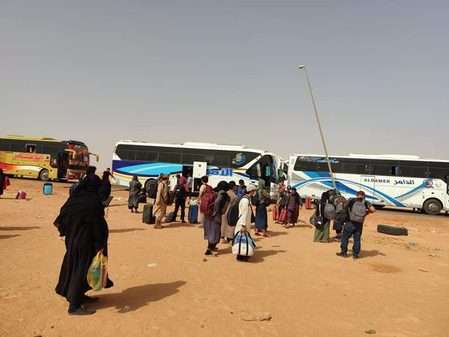
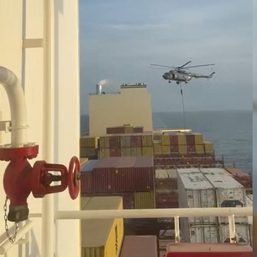
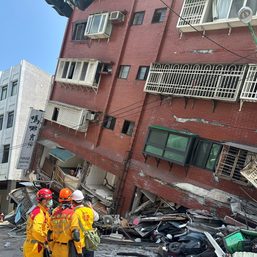
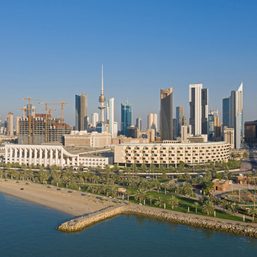

![[WATCH] OFW Hospital: Mga serbisyo at pagsubok](https://www.rappler.com/tachyon/2024/03/ls-tc.jpg?resize=257%2C257&crop=271px%2C0px%2C720px%2C720px)

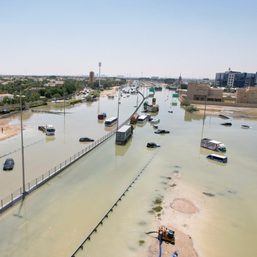
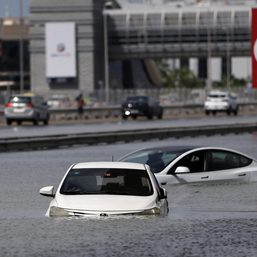
There are no comments yet. Add your comment to start the conversation.